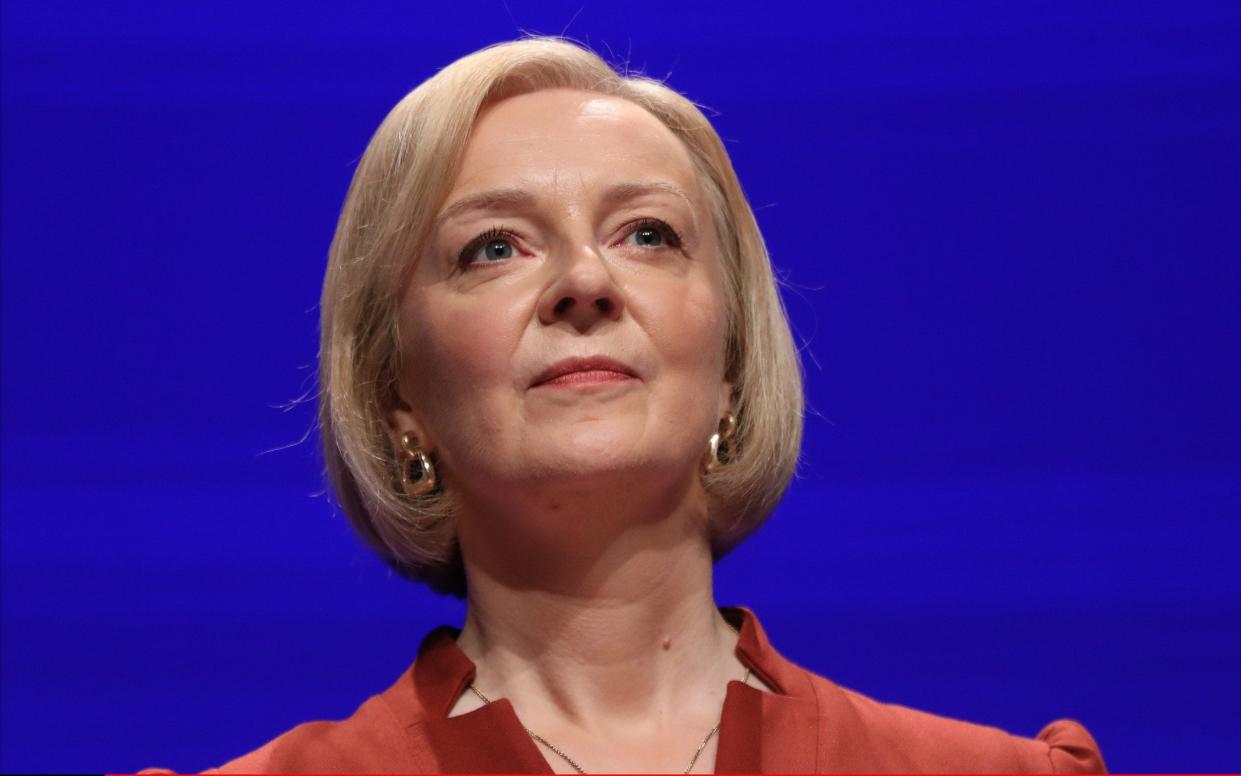Tories face oblivion in Scotland as mini-Budget chaos turns them into ‘minnows’

- Oops!Something went wrong.Please try again later.
- Oops!Something went wrong.Please try again later.
- Oops!Something went wrong.Please try again later.
The Tories face being wiped out in Scotland as voters desert them in the wake of Liz Truss's mini-Budget, according to two opinion polls that reduced them to "minnow" status.
A Sevanta survey for The Scotsman put support for the Conservatives at only 15 per cent, half the 30 per cent enjoyed by Labour. The SNP remained on 46 per cent, with a five-point rise in Labour's popularity not coming from the nationalists.
The Conservatives were predicted to retain barely half - 54 per cent - of their support from the 2019 general election, with almost one in five (17 per cent) directly switching to Labour and a further 21 per cent saying they were undecided.
According to an analysis of the results, the drop in Tory support would mean losing all six of their Scottish seats at the next general election - including the Moray constituency of Douglas Ross, the party’s leader in Scotland, and Alister Jack, the Scottish Secretary who represents Dumfries and Galloway.
Labour would pick up four seats, an increase of three, and the Liberal Democrats would fall back from four to two. However, the SNP would increase its tally by five, to 53.
The poll also found that Ms Truss has a lower net favourability score than Boris Johnson at -57, compared with the former prime minister's -53, while Kwasi Kwarteng's rating was -48. Only Sir Keir Starmer and Nicola Sturgeon had positive scores, at +4 and +12 respectively.
With the Supreme Court holding a hearing next week into whether Ms Sturgeon has the legal power to stage her own independence referendum, the poll also found that 51 per cent of Scots would vote no and 49 per cent yes when undecided people were removed.
A separate YouGov poll for The Times put support for the Tories in Scotland at just 12 per cent, down seven points from May and the lowest Westminster rating for the party in any poll since Feb 2015.
Labour increased its poll rating by nine points to 31 per cent, while backing for the SNP dropped a point to 45 per cent. Only eight per cent said they thought Ms Truss was doing a good job.
This poll would mean the SNP winning 49 seats, Labour seven, the Liberal Democrats three and the Tories zero.
Sir John Curtice, the country's most eminent psephologist, said: "The party looks once again like the minnow it was before its revival under the leadership of Ruth Davidson."
The polls were published only hours after Ms Truss used her first Tory conference speech as Prime Minister to vow that she would "face down" the SNP over its attempts to rip apart the United Kingdom, as she accused Nicola Sturgeon of being part of an "anti-growth coalition".
The Prime Minister told the Tory conference that the UK was "at its best" when the home nations were "working together and getting our economy growing".
Speaking ahead of the SNP conference in Aberdeen this weekend, she vowed to defeat the "the separatists who threaten to pull apart our precious Union."
Ms Truss offered to work with Ms Sturgeon to create investment zones in Scotland, which she argued would boost Scotland's sluggish economic growth rates by cutting taxes and red tape.
But she argued that the First Minister was part of a coalition of naysayers, along with Sir Keir Starmer, the Labour leader, and Mark Drakeford, her Welsh counterpart, who she said "don't understand aspiration" and are content to let taxes rise.
The Prime Minister cited Ms Sturgeon's decision to block the construction of new nuclear power stations to "solve the energy crisis in Scotland."
In a scathing response on social media, Ms Sturgeon said:
Ranting about an imaginary ‘anti growth coalition’ is just an attempt to obscure the hard reality that the biggest brake on UK growth is Brexit - and that’s on the Tories.
— Nicola Sturgeon (@NicolaSturgeon) October 5, 2022
But Scotland's GDP has grown at less than half the UK rate since 2014. On Wednesday, economists predicted that the country will enter recession in the second half of this year.
The University of Strathclyde's Fraser of Allander Institute predicted that the Scottish economy will contract in the final two quarters of 2022 and the first quarter of 2023. A recession is defined as two successive quarters of negative growth.

